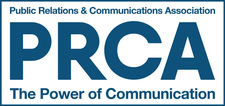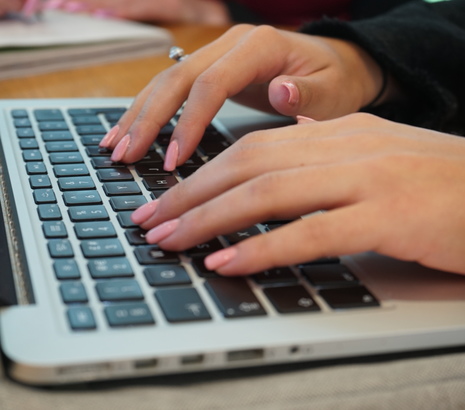BA (Hons) Journalism and Digital Media
Key information
-
Typical offer:
Entry requirements -
Fees: See below
Full details -
UCAS code: P903
-
Institute code: H36
-
Study abroad option
-
Work placement option
Find out more
Why choose this course?
- Learn latest skills - podcasting to video from award winning experts
- Accredited by PRCA (Public Relations and Communications Association)
- Network with media professionals from the UK and internationally
This is a fascinating time to be a media professional, with traditional media like magazines, television and radio, jostling for attention alongside PR, blogs, podcasts and social media. You’ll gain two vital media skills by combining journalism and media. This exciting course will develop your practical, professional writing skills, shed new light on how the media works and get you some hands-on experience that employers are really looking for.
You'll gain real-world skills including how to create and publish content for a broad range of formats including video, podcasts, print and online. In the final year you can take up work experience, work for a client or even start your own media business—all guided by tutors.
The course places a strong emphasis on building confidence in your communication skills and employment prospects. You'll have the opportunity to learn about internships and take part in industry events thanks to our affiliation to the Public Relations and Communications Association (PRCA), one of Britain's top trade organisations for PR professionals. You can attend our Media Matters guest lectures (see below for more detail) given by a range of media speakers from top journalists to our recent graduates.
Our inspiring, industry-experienced academic team will develop your journalistic skills, alongside learning about media theory and skills, including digital, and other roles within the media.
In the 2022 National Student Survey (NSS), our media degrees achieved an overall satisfaction rating of 82%. 85% of students reported that lecturers were good at explaining things and 82% of students (above the sector average) appreciated the chance to bring information and ideas together from different topics.
What's the course about?
Teaching delivery is varied. Workshops are used for modules where the degree of practical skills taught is enhanced by the supervision of experts in their field but there are also seminars and lectures. Attainment of learning outcomes is also assessed in a range of formats from traditional essays to presentations, creating adverts or campaigns or working in a small group to create presentations or other creative project.
In your first year, you’ll explore the basics of journalism, learning about how to tell factual stories in written form, through blogs and podcasting and video. You’ll also reflect on how journalists should and do behave and their relationship with government. You’ll also learn about the media industry and about how media is changing in our globalised world.
In your second year, you’ll start to broadcast, brainstorm ideas for a magazine concept, learn about how journalism changed the world and gain insights into the fast-paced world of news. In media, you’ll explore the world of branding or magazine design, learn about the publishing industry and have the opportunity to create a short video documentary.
Work placement/study abroad option*: Between your second and final year, you’ll have the option to study abroad or complete a work placement for up to a year. Not only will this give you an amazing experience to talk about, but it will also give your CV a boost. If you would rather go straight to your final year, that’s fine too. You can decide in your second year with us, so there is still plenty of time to think about this.
In your final year, you’ll get a wide range of options. In journalism you will report on international stories, create your own website, have work experience, freelance or create your own media business. You will also practice writing for a variety of audiences. In media, choose between practical projects such as creating a media project for a client or designing for the web, or learning more about Public Relations, Advertising or the relationship between media and identity and celebrity and media. This is when you’ll use our membership of the PRCA and BSME to best advantage to gain opportunities to network professionally and build up your professional skills.
'Media Matters' industry speakers and networking.
Each year the School of Humanities hosts the Media Matters Guest Lecture Series featuring a range of industry professionals, giving talks on their experience in the industry. These lectures are recorded by our final year students and available on our Media Hub. Some of our previous speakers have included:
- Uche Amako, Sportswriter for The Telegraph who studied Journalism at UH.
- Theresa Malone, Visuals and Social Media Editor of The Guardian.
- Andrea Thompson, Editor in Chief of Marie Claire.
- Charlotte Jones, Global Content Creator, Life Coach who studied Media and Journalism at UH.
- Steve Swann, Producer and investigative Journalist, BBC.
Your main campus is College Lane
This is where the creative arts, science and health-related subjects are based. This means you’ll share the campus with future nurses, scientists, artists and more. You can use the common rooms to relax with friends, work out in the 24-hour gym or have a drink in our on-campus pub or cafes. We also have restaurants for you to eat in or grab something on the go. Our Learning Resources Centres are open 24/7, which means you can study whenever suits you best. Want to pop over to the other campus? You can take the free shuttle bus or walk there in just 15 minutes.
What will I study?
Degree programmes are structured into levels, 4, 5 and 6. These correspond to your first, second and third/final year of study. Below is a list of compulsory and optional modules. However, whatever choices you make, you will study no more than eight modules a year and possibly less in your final year depending on your degree.
Check out our student blogs
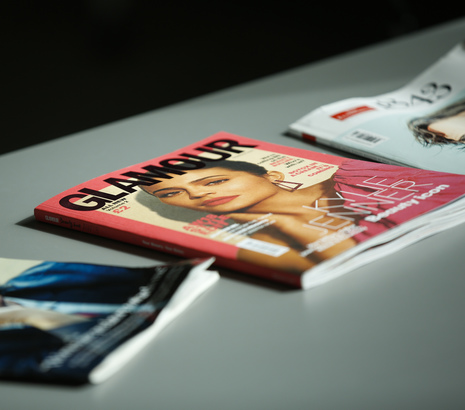
Student Blogs
Esther – A day in the life of a Journalism and Media student
I would love to say I wake up early to start my day, however, the reality is my mornings normally begin around 10:00 (if I don't have lectures). I start my day with breakfast and a cup of coffee while I check my emails. I then begin getting ready for lectures or tasks I have to complete that day. On an average day, I may have one or two lectures that last around two hours, or on the days that I don't have lectures, I can get some of my coursework done or independent study in preparation for my lectures. I also have a blog that I add to from time to time, generally writing about anything that has caught my attention that week or month. I attempt to finish all my responsibilities by 19:00 so I can enjoy my evening however I wish to.
One of the things that attracted me to the University of Hertfordshire was the flexibility in course choices. I was able to take a year abroad in Madrid, Spain, where I studied different modules including journalism, law and international relations. There are endless possibilities at the University, and you are (to a reasonable extent) able to tailor your degree.
On my study abroad year, I had the fantastic opportunity to go to Universidad Europe de Madrid. It was a beautiful university campus (it had two waterfalls on the campus) with a big international student community. There I got to study law and journalism, but also subjects that I haven't taken before such as international relations. I was able to study under journalists who had written for the Huffington Post and a National Spanish Newspaper, El Pais. I also had the chance to create a project alongside the American embassy in Spain to encourage more cultural exchanges between young people in Spain and America. All this while also living in the heart of central Madrid. Some of my closest friends I met while I was in Madrid and I was also able to broaden my network by meeting people from across the world. I loved my experience there so much that I plan to move back for a short time after I graduate.
There is never a dull day being taught journalism at Herts, full of fun activities and challenges. There is normally only one workshop a week in journalism that last around two to three hours at a time, in which you have opportunities to discuss your article ideas with your lecturer and classmates. In any usual class, there are normally discussions about current affairs or popular culture, making it a really interactive learning environment. Every module that I've taken in journalism so far has been motivating and has taught me real employability skills. However, the last term in particular I took my favourite module thus far. The International Reporting module was not only fun and exciting, but it also gave me a real insight into worldwide correspondence. One of the assignments I had was to complete a multimedia presentation, and I chose to focus on the racial fetishization of black women in Spain. I was able to utilise contacts I made during my year abroad and it was an enjoyable way to explore the different sides of journalism.
Going back to my typical day, I also perform my role as a journalism mentor, a new opportunity available for third-year students. My job is to assist the first-year students with lectures and answer any questions they may have. It's a great job because I've been in the same situation as the first-year students, so I am in a unique position to help other students and it also refreshes my knowledge on topics covered in first year.
Overall, because of the pandemic, life has slowed a little at the University, but when life gets back to a little more normality, so will the activities around campus. While in first and second year I took part in a lot of activities available, including netball and roller-skating as part of active students and I loved it, it was a great way to mix with different people, that you may have never had the chance to meet.
To sum up, every day at university comes with its own challenges and experiences, but as long as you work to the best of your ability and take every great opportunity as it comes, your university experience will be one to remember.
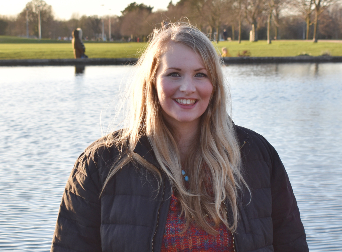
Alumni Stories
Kate Stephenson
Meet Kate Stephenson who has excelled in the publishing industry since graduating. She currently works as the Education Editor at National Geographic Kids magazine.
Read more stories BA (Hons) English Language and Media| Current job role | Education Editor |
|---|---|
| Year of graduation | 2013 |
| Course of study | BA (Hons) English Language and Communication with Journalism and Media Cultures |
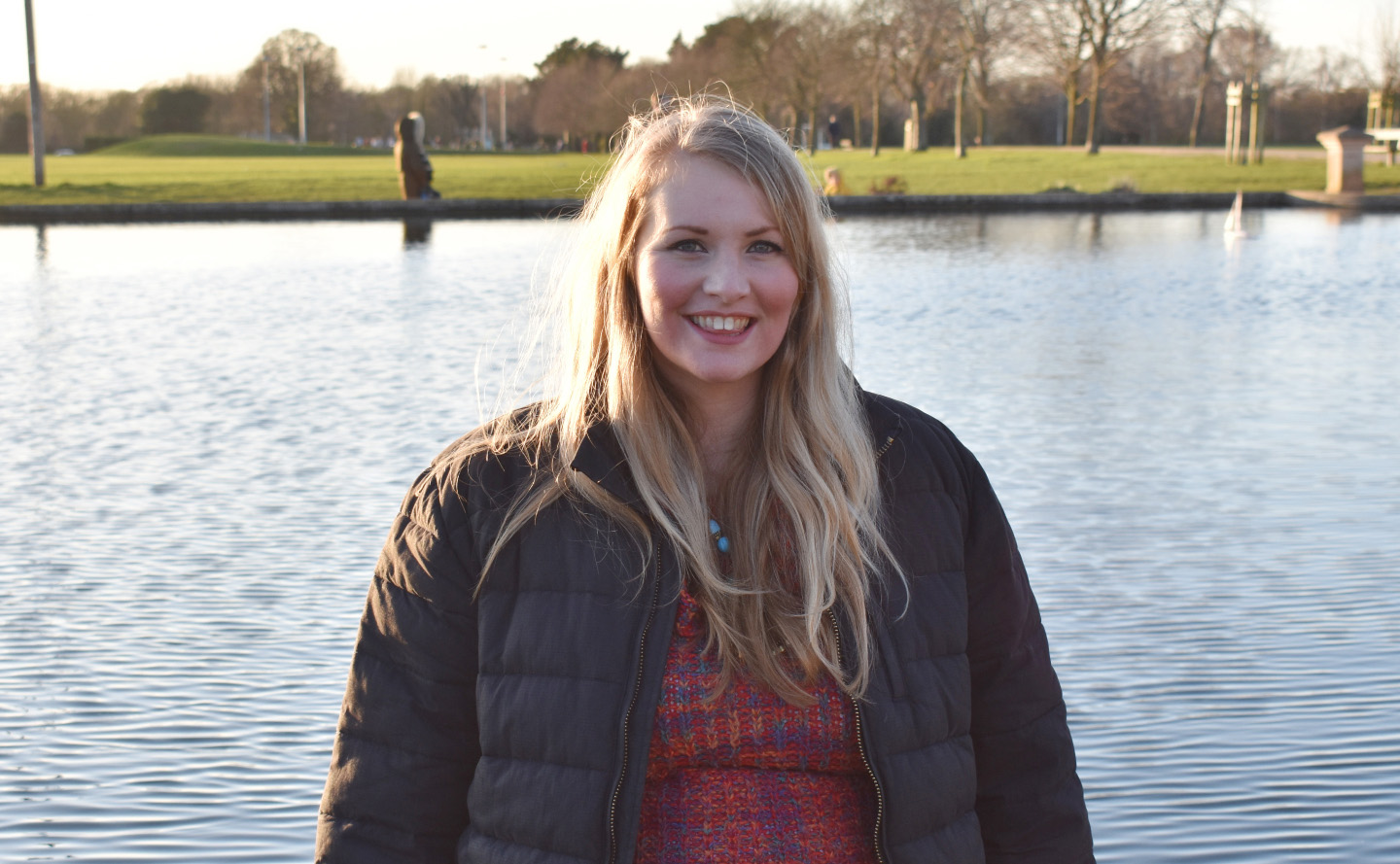
University experience
Kate always knew that she wanted to work in the media and her unique degree gave her the flexibility to understand the logistics behind magazines as well as develop her writing and communication skills. The variety of topics and modules covered in her course enabled her to understand a lot about her dream career and enable her to develop valuable skills for working in the industry.
While studying, Kate took every opportunity offered to her. Her lecturers gave her opportunities to network with their colleagues for the industry enabling Kate to secure work experience and explore different career opportunities upon graduation.
She also worked as part of the Students’ Union student media, called Triden Media, writing regularly for their newspaper and magazine. Kate says, ‘Take advantage of every opportunity while it’s on offer and dive in as much as possible.’
The future
In the future, Kate hopes to further develop and grow the project she is working on at National Geographic and their educational content. One of her recent projects was launching their Primary School resource service by writing the curriculum.

